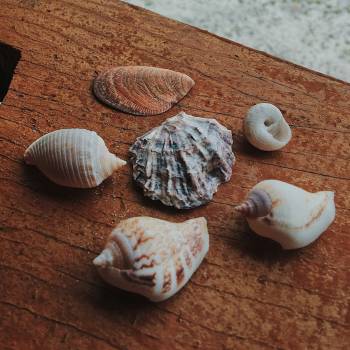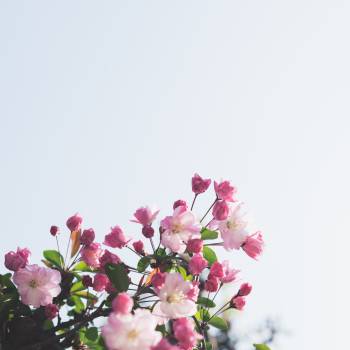Allah subhanahu wa ta'ala says in the Qur’an:
“And put forward to them the example of two men; unto one of them We had given two gardens of grapes, and We had surrounded both with date-palms, and had put between them green crops (cultivated fields). Each of those two gardens brought forth its produce, and failed not in the least therein, and We caused a river to gush forth in the midst of them.” [Surah Al-Kahf 18: 32-33]
The story of the owner of the two gardens is among the many amazing lessons we can derive from Surah Al-Kahf. In the above ayah, Allah begins by introducing the incredibly rich owner of the two gardens to us. He had two grape gardens and other cultivated fields, with rivers that streamed in between, and the whole property was surrounded with date-palm trees. Allah made his gardens in such a way that they never failed to produce good quality fruits and crops, always fertile, and constantly brought forth maximum results. So not only were his gardens absolutely beautiful, but they always brought him maximal profits.
“And he had (other) property, and he said to his companion in the course of mutual talk: I am more than you in wealth, and stronger in respect of men (eg. workers).” [Surah Al-Kahf 18: 34]
A person who is immensely wealthy and always successful has the potential to be extremely arrogant, and indeed, the owner of the two gardens was afflicted with this spiritual disease. When he invited his friend, who was poor, to his garden, it wasn’t because he wanted to give some of his produce away as charity, he only wanted to brag about himself, and to show off his wealth to his friend.
“And he went into his garden while in a state unjust to himself. He said: I think not that this will ever perish. And I think not the Hour will ever come, and if indeed I am brought back to my Rabb (on the Day of Resurrection), I surely shall find better than this when I return to Him.” [Surah Al-Kahf 18: 35-36]
The owner was so prideful of himself, that as he entered his garden, he said three sinful statements against Allah subhanahu wa ta'ala - the One who gave him everything he owned!
The first sinful statement was when he said that his gardens would never, ever be destroyed. His properties always yielded abundant crops, never brought him any kind of loss throughout the years, and so he thought it was because he was very wise, exceptionally smart, and experienced in managing his properties. He attributed his success to himself, not to Allah subhanahu wa ta'ala - not even one ‘Alhamdulillah’.
The second sinful statement was that he doubted the existence of the Day of Judgment. And his third sinful statement was when he said that even if the Day of Judgment was true, he would surely be granted with something better than what he had right now. He thought his worldly success was a sign that Allah was pleased with him, and therefore he likened his status in the hereafter to be even better than his current status in this dunya.
“His companion said to him during the talk with him: Do you disbelieve in the One Who created you from dust, then (developed you) from a sperm-drop, then formed you into a man? But as for my part, (I believe) that He is Allah, my Rabb, and none shall I associate as partner with my Rabb.” [Surah Al-Kahf 18: 37-38]
But his friend, the one who was poor, advised him to not be deceived into thinking that way. He reminded his friend that if Allah created mankind from dust very easily, then Allah can just as easily resurrect mankind on the Day of Judgment. While the rich friend loved his wealth immensely, the poor friend loved what was more important - and that was iman! He admonished his rich friend for his sinful statements.
This scene is actually amazing because it was the poor who advised the rich, and not the other way around!
“It was better for you to say when you entered your garden: ‘This is what Allah has willed, there is no power except with Allah!’ If you see me less than you in wealth and children. It may be that my Rabb will give me something better than your garden, and will send on it a torment from the sky, then it will be a slippery earth. Or the water thereof (of the gardens) becomes deep-sunken (in the underground) so that you will never be able to seek it.” [Surah Al-Kahf 18: 39-41]
The friend continued to advise him to thank Allah by saying:
مَا شَآءَ ٱللَّهُ لَا قُوَّةَ إِلَّا بِٱللَّهِۚ
Ma Shaa Allah, la quwwata illa billah.
This is what Allah has willed; there is no power except with Allah.
Sheikh Ibn Uthaymin rahimahullah said that when a person sees something about himself that amazes him, he should say “Ma Shaa Allah, la quwwata illa billah.” This statement is a recognition of our helplessness without Allah’s intervention. We are basically saying: I cannot possibly do and achieve all this without the help of Allah. So instead of thinking along the lines of “I am diligent/smart, and therefore I was successful”, think instead “Ma Shaa Allah, it is by the Rahmah and Helps from Allah that this project was successful.” This belief and thought process will, In Shaa Allah, nullify the feeling of self-conceit (i.e. ‘Ujub in Arabic) in our hearts.
“And so all his produce was (totally) ruined, so he started to wring his hands for all he had spent on it, while it had collapsed on its trellises. He cried: ‘Alas! I wish I had never associated anyone with my Rabb (in worship)!’ And he had no manpower to help him against Allah, nor could he (even) help himself.” [Surah Al-Kahf 18: 42-43]
One tafseer opinions is that the poor friend was hurt by the arrogance of his rich friend, so he made du’a against him and Allah answered that du’a. Another tafseer opinion is that the poor friend advised him out of sincerity, but the owner of the two gardens did not take heed of his friend’s advice, and thus Allah destroyed all of his wealth - every single one of them! Not a single piece of his property survived, not even one piece of grape. All was utterly ruined. The consequences of his sins and arrogance reached him, and the owner finally regretted his sins.
Brothers and sisters in Islam, know that this dunya is a test, and some of us will be tested with wealth and poverty. Be certain that our worldly success or loss is not a definite measurement of our akhirah, but it is our Taqwa of Allah. Allah subhanahu wa ta'ala says:
“Verily, the most honourable of you with Allah is that (believer) who has At-Taqwa.” [Surah Al-Hujurat 49: 13]
Allahumma, make us among your believers who are humble and grant us life-long iman and taqwa. Aameen. 🌸
________
References:
- Tafsir Ibn Kathir
- IslamQA.com
 Aida Masuri Mustafa
Aida Masuri Mustafa 




